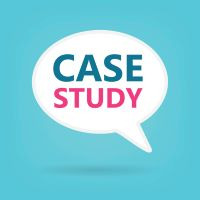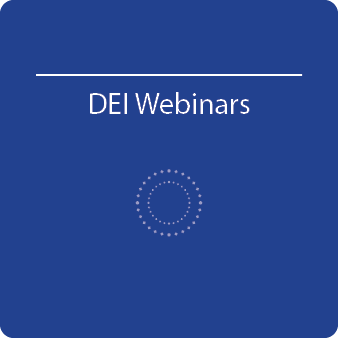You are in: Central America
Change location
You are here
Sage College DEI — Editor’s Desk


Get an Inside Look at Content Development
Partnered with our authors, Sage College Editors are learning to develop content with DEI as a priority. The work ranges from complicated and painstaking to gratifying and motivating, with each project demanding something different depending on the course, new scholarship, peer review feedback, and our guidelines for detecting and remedying bias.
Cases from Sage College Editors offer an inside look at how this content development work is happening, with insights as to how we establish best practices, learn from each other’s successes (and failures), and improve the editorial guidance we provide our authors.
Beyond the Canon: The Role of Contributors in Edited Volumes*
Believe it or not, textbooks are not always the answer in Political Science classrooms! For some upper-division courses, edited volumes are incredibly popular with instructors because they bring together leading and emerging scholars to focus on a common theme. As an Acquisitions Editor, it’s my job to ensure that our volume editors are producing an edition that will make an impact on the field. A strong volume will balance ...more.
Representation throughout Business Cases and Examples: A Quantitative Exercise for Quality Results*
An important feature of many of Sage’s business textbooks are the examples and case studies that feature real companies and profile real people. Case studies are assigned by many instructors as a reading assignment, serving as a learning tool to connect real-world examples to the core content in our books. When considering diversity, equity, inclusion, and belonging, we make concerted efforts to provide examples that represent a diverse group of people, companies, places, and ideas...more.
Updating Language for Sensitivity: How Focus Group Conversations Revitalized a Social Work Text*
In an applied area like social work, Sage’s DEI efforts go far beyond the textbook page—they can directly affect the lives of some of the most vulnerable people in our communities. It is crucial that social work students have access to representative texts with up-to-date theories and research on issues like race, gender, sexuality, class, and healthcare...more.
Answering the Call for Inclusivity: The Creation of a Video Program that Reflects the Public Relations Field*
For career-driven PR students, few things are more valuable and instructive than practical advice and applied approaches. Instructors told us that they wanted resources to help these topics “come alive.” With the field of PR becoming increasingly diverse in terms of audiences, brands, and practitioners—not to mention industry specialties and job responsibilities—our video program needed to cover a lot of ground to speak to students of varied backgrounds and interests...more.
Cozy Up with the Radical Copyeditor: My Go-to Spot When I Have Questions about Language Use*
In 2021, Corwin invited queer educator and organizer Alex Kapitan to run a presentation titled “Liberatory Language Practices: Inclusive Language and the Powers of Words.” Alex (they/them) is a trainer, speaker, consultant, editor, and activist who left the world of nonfiction book publishing to start Radical Copyeditor, an anti-oppressive language project. This is often my go-to spot when I have questions about language use...more.
Putting Classic Research into Modern Context: When the social discourse has changed, how do we continue to incorporate older—but important—studies in our textbooks?*
Classic research plays an important role in informing all social science disciplines and modern research. However, given that many frequently cited classic studies are decades old, they don’t always read the same to the modern eye as they did to the authors’ contemporaries. When the social discourse has changed, how do we continue to incorporate older—but important—studies in our textbooks?...more.
A More Contemporary Communication Text: New Coauthors Add the Perspective We Knew We Were Missing*
When we study communication, we study the methods by which we communicate, as well as the meaning behind them. Whom we communicate with and how frames the context of our messages, as do our own experiences and perspectives. Scholars analyze why people are the way they are in order to understand differences in communication styles and learn how to adapt to them. One of the problems with this comparative analysis is that...more.
Improving a Foundations of Education Text: Systematic Manuscript Checks and Focused Content Reviews*
This is the story behind a 2021 revision of a Foundations of Education text, designed for a first course for future teachers and educational administrators. This project reflects the level of care and concern we bring to bear in DEI-sensitive texts and markets, often using incremental and pragmatic approaches while keeping schedules in check. We balanced content concerns with evolving standards, deeper revisions of the text, and timely publication...more.
A More Inclusive Sociology of Families Text: Using Sensitivity Reviews to Tackle Difficult Topics*
A fundamental pillar of our Sage College DEI efforts is to understand and reflect the diverse lived experiences we have in the pages of our books. Textbooks on the sociology of families provide an opportunity for students to encounter a breadth of topics they have experienced or may experience in the workforce and in their personal lives, such as socioeconomic inequality, varying family dynamics, domestic abuse, elder abuse, and child neglect...more.
Revitalizing Content for a Global Understanding of Inequality: A Focus on Photos, Graphics, and Data*
When we work with an author on a new edition or first-edition manuscript, we take the time to examine coverage of DEI topics to see what can be improved. In one of our social inequality books, we decided to revamp the figure and photo program to align with Sage’s Diversity, Equity, and Inclusion efforts. Our goal was to have a visual representation of the various types of inequality that exist in different social structures and in different countries...more.
*Published 03/24. © 2024 Sage Publishing. All rights reserved. All other brand and product names are the property of their respective owners.

